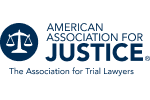Defense Lawyers
Arson
“Fire that’s closest kept burns most of all.”
– William Shakespeare
Arson is a serious felony charge. Arson is defined as intentional burning of a building. A person who aids, abets, encourages or acts as an accessory before the fact (a helper) can also be convicted of arson. Frequently, arson involves the use of accelerants. An accelerant is a substance that accelerates the spread of a fire. Examples include gasoline and flammable solvents. Arson can also involve combustible material rather liquid accelerants. A person who procures accelerants or helps someone else set the fire can be convicted of arson. First degree arson means intentionally burning a dwelling house whether occupied or vacant, or its out buildings such as a garage or shed. Burning a school building is also first degree arson. The willful, malicious burning or aiding or encouraging someone to burn a church, temple, synagogue or other place of worship can also be charged as first degree arson.
Second degree arson consists of aiding, encouraging or helping set fire to any building or structure other than a dwelling or church. Intentionally setting fire to personal property such as a vehicle or inciting another to do so is third degree arson.
Fourth degree arson includes any attempt to set fire to any building or other personal property not named above. Fourth degree arson also includes placing an accelerant such as gasoline, an explosive material or any device with intent to set fire to a building or personal property. Intentional arson or any attempt to set a fire, or aiding, counseling or encouraging another to start fire with the intent to defraud an insurance company is a felony.
Intentional arson of woods, fields or marsh is a felony. Causing a woods or marsh fire in a recklessly negligent manner is a misdemeanor. In either case, the state can recover the cost of suppressing the fire.
Whenever an incendiary fire causes serious injury to occupants, fire fighters, law enforcement personnel, police or other emergency workers, the defendant can be charged with felony aggravated assault. There is no statute of limitations for prosecution of arson.
After a fire or explosion, the responding fire department will try to determine its cause and origin. If the fire resulted in a death or serious injury, large dollar loss, or involved state, federal or school property, the state fire marshal may be called in to investigate. Cause and origin experts will try to determine the reason for the fire. Expert examination can include electric and gas appliances, electric blankets, hair dryers, electrical wiring and automotive components. If accelerant is suspected as the cause of the fire, samples will be collected and sent to the Mississippi Crime Lab in Jackson for forensic chemical analysis.
The expert’s qualifications, factual basis for the opinion including, assumptions, opinions and conclusions are all subject to scrutiny. Fire expert cause and origin opinion should be in accordance with NFPA 921. Gulfport defense lawyer Al Jordan has prosecuted felony arson cases in the past. Al Jordan now defends arson charges. Sometimes it is necessary to retain a cause and origin expert to help explain how and why the fire started. The best criminal defense lawyers will know how to rebut the county or state fire marshal.
The defendant is entitled to have his own expert verify and challenge the prosecution’s expert reports. Although expert opinion must be based on scientific methods, cause and origin analysis is not exact science. Even if accelerant is present at the scene and the cause of the fire is determined to be incendiary, the prosecution must still prove that the defendant caused it. Expert opinion based on sampling errors, evidence collection errors, cross-contamination, erroneous burn pattern analysis and other errors in scientific methodology can be challenged. Motive and opportunity are always considered but they are not elements of the charge.
Call Today
If you are being investigated for arson, call today. The penalties are serious and there is no statute of limitations. Call Albert R. Jordan IV of Healy & Jordan, PLLC today at 228.863.0123. We are located at 1323 28th Ave #A, Gulfport, MS.







